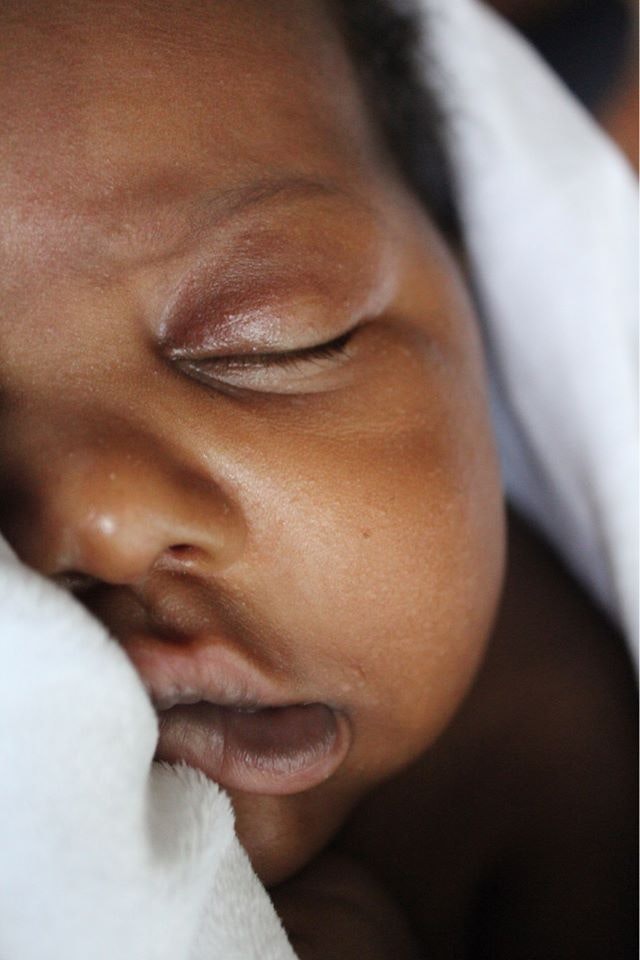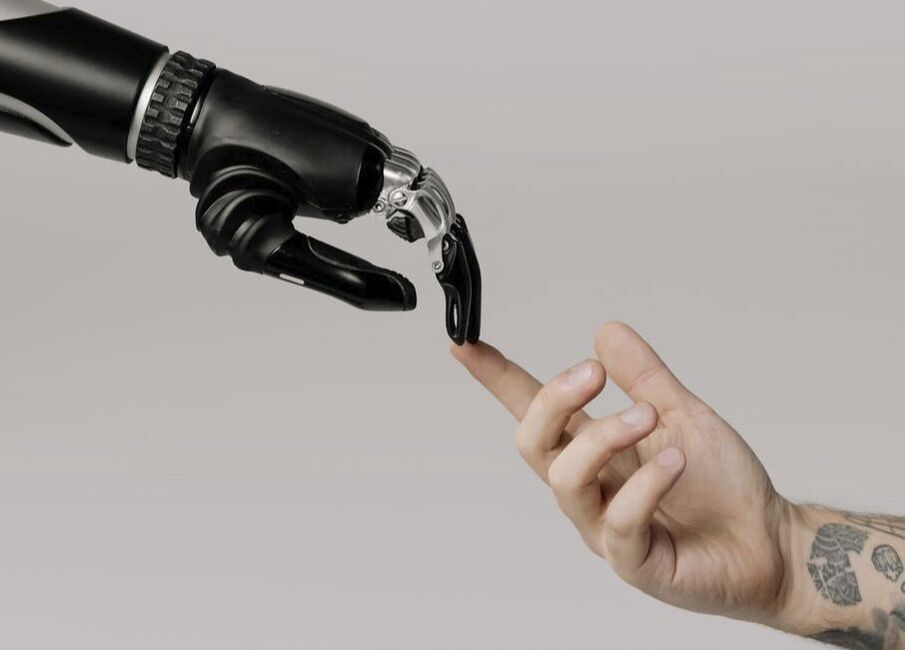|
For the last few week's I've done a deep dive into the reproductive evolution, both real and speculative, that brings about the world of The Other Women. This week, I'm going to share with you a deleted scene that may or may not make it into the prequel, but which for now is just sitting on my computer waiting to see the light of day. Until today, that is! Take a read. Let me know what you think in the comments. Join the exclusive reading club to get more things like this. Enjoy! “Can I ask you a question?” whispers Ruma.
She stands with Evie in the dark nursery, looking into the womb through a small window at the tiny being that in just a few short months will become Evie’s son. She's here to learn, as much as she is to visit with her friend. Ruma has seen plenty of incubating babies, but she watches this one with a new perspective. She peeks in on him almost daily, reviewing the information she’s compiled from the archive about the interaction that would be occurring between a baby’s body and its mother’s. Though it will be decades before she needs to put this knowledge into practice, it's her responsibility to know all there is to know about pregnancy and childbirth. By the time the Daughters are ready, they need to be prepared. Evie raises her eyebrow and watches Ruma out of her periphery. “Sure,” she says. “Why did you choose to have a boy?” Evie is quiet for a moment. Ruma has heard the overly-simplified answer to this question multiple times, in mixed company – Her partner really wanted a boy, and Evie decided she’d let him have his way, just this once. Chuckle. But Evie considers her every action to the smallest detail. A man's caprice can’t be the only reason a women’s rights advocate would choose to have a male child. Ruma wants to know the deeper reason. “It’s a complicated answer,” Evie says. “I think, after everything, you owe me more than ‘It’s complicated,’” says Ruma, masking her annoyance only thinly. Evie takes a deep breath and lets it out. “Okay, well, first, because, like it or not, men still hold a lot of power. By having a boy, who will grow up to be a man, I hope to help shift that dynamic in our favor.” “And you think one man will be able to make that much of a difference?” “I’m not the only one,” Evie murmurs, lips barely moving. Ruma turns to look at her, but Evie’s eyes remain fixed on her developing baby. It never occurred to Ruma other Mothers would make this same decision. Just when Ruma thinks the conversation is over, Evie speaks again. “I couldn’t bear to have a girl who would have to go through safeguarding, and…” she shakes her head, sighing once more. “We're just not ready yet. I just couldn’t take any chances.” Ruma nods slowly. At last, she understands. Evie can’t stomach the safeguarding procedure, but skipping it before the Garden Society is ready could jeopardize all their efforts. Better to have a boy, then, and raise him to be the advocate we need. “I should get home,” Ruma says after a few more minutes. “We’ll see you two at the rehearsal tomorrow?” For a moment, as she's watched the floating creature inside the womb, she forgot her nerves, but remembering tomorrow's dinner brings them rushing back. Only two more days until she and Josiah will be married. Evie nods. “Of course,” she says, smiling and reaching out for a hug. Ruma hesitates. Can she do this? “What is it?” asks Evie. Ruma’s long, black waves fall out of her face as she looks up at the ceiling. She swallows and wills her mouth to move as she looks back up at her closest friend. “I’ve never lied to him before,” she says. Evie pulls the taller woman close, and this time Ruma lets her. She pats the back of the taller woman’s head. “Don't worry,” she says into Ruma's hair. “Josiah will never know.”
2 Comments
From "test-tube babies" to mechanical wombs, how will we know when medical technology has gone too far?
This question came up while researching for my novel, The Other Women. Generally, ideas for my writing come to me as "What-if" questions. I'll notice something out in the world, and I'll wonder about it. And if my wondering takes me far enough, I'll know I've got a story. For this particular book, the idea of mechanical wombs, or what I call nursery wombs in the book came up as the central idea. Here's an example of my thought-ramblings as I unraveled the idea: What if there were a way to keep tabs on a developing baby? It would have to be an implant of some sort. I wouldn't want that kind of implant. But, wait. What if it were possible to grow babies in artificial wombs, so you could watch life as it unfolds and be certain the process is going along flawlessly? Surely that's going to be a thing at some point. And what if they were so commonplace that you could have one right in your nursery at home? You could insert a cartridge with the perfect combination of your and your partner's DNA, and you could watch the miracle of life unfolding together. Man, that would alleviate a lot of complications - maternal death would be zero. Birth would be predictable. Everything would be monitor-able. So... what if these nursery wombs became the only way people ever had children? What if the government mandated it? And so began my journey - or, I should say, Lucinda's journey. And Ruma's, and Evie's, and all the other characters in the book. Torn between wanting to know what was going on inside my own body at every moment and wanting the ability to carry my own children, I created a world where that same tension existed in a different form. I began researching the advancements that have been made in reproductive technology, and then extending them beyond today on what I assumed (based on nothing whatsoever) would be a logical time frame. (Make sure you're a VIP so you can get this projected timeline delivered right to your inbox tomorrow!) And then, even as I researched and wrote the book, breakthroughs kept happening to support my premise: nursery wombs will be a thing. Probably sooner than we think. But where will be the line of propriety, of ethical use? What will be the nature-technology balance, especially if this kind of thing comes to be seen as superior to, or safer than, the way we do things nowadays? I promised last week I'd come back around to the question of why we would want or need mechanical wombs to begin with. I'm sure you can think of a reason or two, but I'll outline some here:
After they've been used successfully and proven safe, why wouldn't society want more of them? And in places where medicine is socialized, why wouldn't the government want things to be safer and more predictable? First, maybe there will be incentives for using the nursery wombs. But later, when most of the population is already using them, what would be the harm in mandating them? Who wouldn't want their child, their partner, or themselves to be safe and free of natural childbirth and all it entails? I could see it happening. How about you?
I've been wrestling with the question of human evolution for a while now. It's a thought exercise that came up while I was researching and writing my novel, The Other Women.
Natural evolution is an inconceivably slow process. It takes basically forever for nature to work out what traits will work best on a given organism in a given environment. I was going to insert some really interesting factoids here about how long it took things like prehensile tails and marsupial pouches to evolve, but the truth is that this stuff happens so slowly and incrementally, there's really no clear answer to those questions. Just think how many iterations nature went through before we humanoids developed the ability to walk fully upright as we do. Gradually that happened, over millions and millions of years. 
But technology has changed all that.
Technological advancements have already allowed humans to survive and thrive in areas where they would otherwise perish - if they even managed to get there at all - and many of us wouldn't be here if not for medical advancements made in the last hundred years. Things that would sound like science fiction to our grandparents are commonplace today. For example, a third of U.S adults report that they or someone they know has used fertility treatments, according to the Pew Research Center. More than 250 million courses of antibiotics are prescribed annually. Six-hundred-fifty thousand patients take chemotherapy each year, according to the CDC. This is just a short sampling of the ways medical technology has created and sustained life where, before, there would have been none. All this is possible today, and there is no end to the potential for innovation in coming years. Which makes me wonder: Where is the line? What is the limit? How will we know when enough is enough? I read an article in the Times a few months back that I found at once fascinating and altogether unsurprising: Scientists Grow Mouse Embryos in a Mechanical Womb. Science did that. Scientists took embryos out of a mama mouse, put them into mechanical wombs, and grew them for a week or so with no incident. It's a pretty low-level process compared with growing a whole human baby in one of those things, but I can almost guarantee you that's on the horizon. Why would we want to grow a human baby in an artificial womb? Lots of reasons, which I'll get to in the Newsletter (where I'll share some of the reproductive technology research I put together before writing the The Other Women) and in next week's post. What's important for this conversation is the likelihood that, eventually, it will happen. And when it does, after a while, it might feel just as commonplace as in vitro does today. A hundred years ago, cancer was a death sentence. If a person was unable to conceive a child naturally, they were destined for other avenues of parenthood, or not. An infection that's easily treatable with today's medications had a pretty good chance of killing you. While some of us are naturally inclined (*raises hand*), I don't think there are many of us who would prefer these outcomes. We use technology to help us survive, and while we do evolve socially, technology does much of the physical adaptation for us. Advancements in science, technology, and medicine have progressed our society at light speed over the last century compared with other time periods in history. But does that mean we've given our evolution over to technology? How has technology changed the meaning of the term "evolution"? How might it continue changing in the coming decades? I'd love to know your thoughts; just comment below! |
Nicci KadilakI'm the boss around here.
Archives
January 2023
Categories
All
|




 RSS Feed
RSS Feed